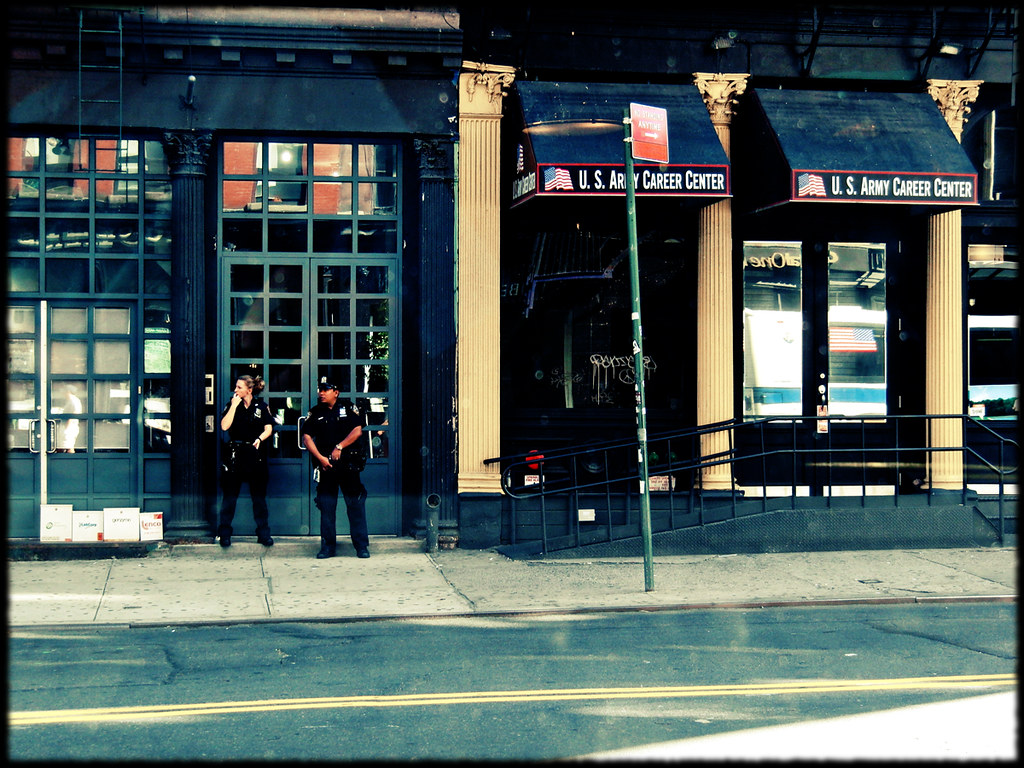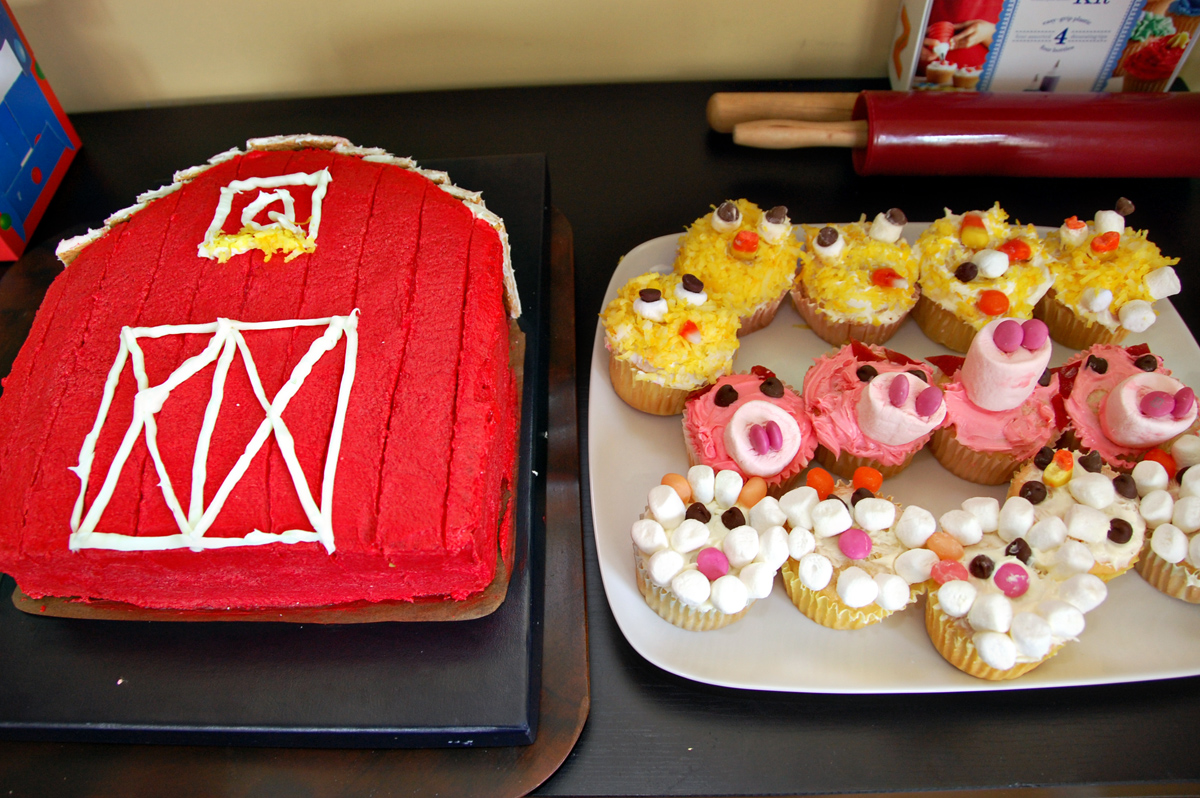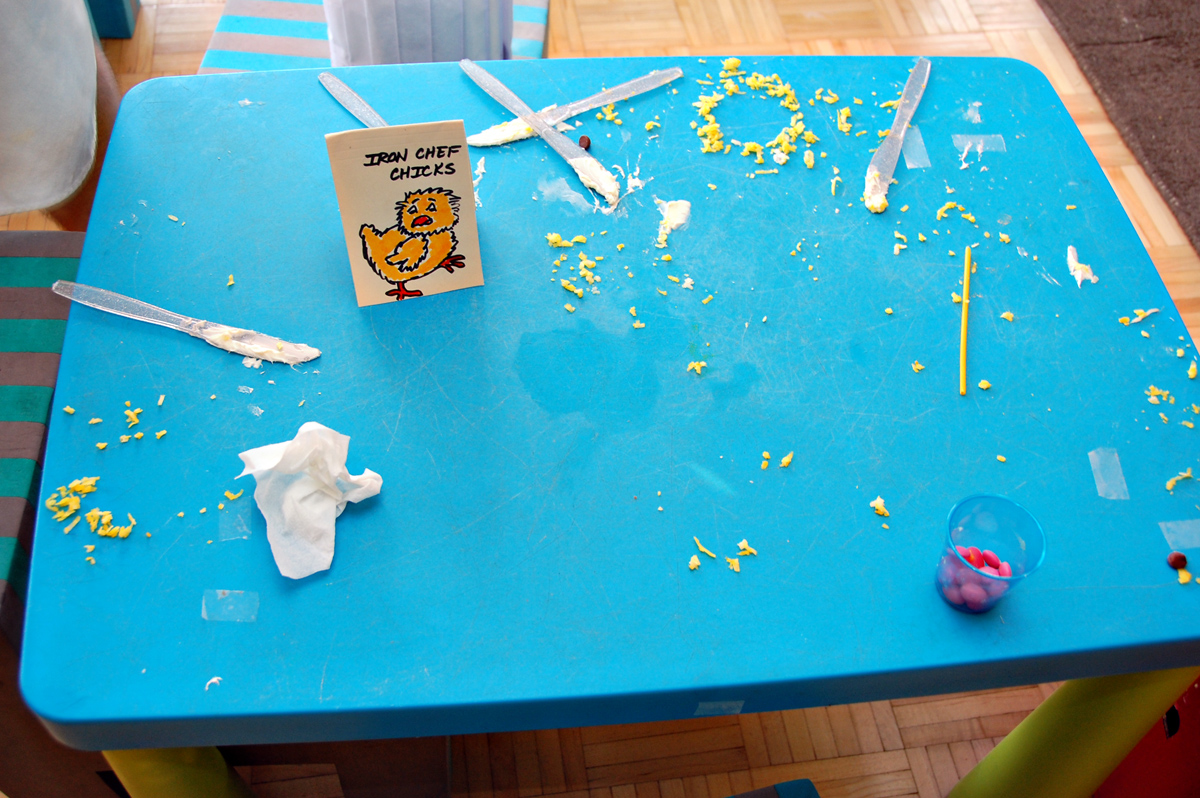My lovely wife was away in California all weekend helping her sister and brother-in-law with their new baby. Having your first newborn is a little like staying up for a week solid and then having some stranger throw everything you own into the air at once.* To maximize both the time with her sister and her own children, my wife flew back to New York through Sunday night. She didn't sleep much on the plane,** and after four days of nights up she was too exhausted to walk an aircraft carrier.
Yes, an aircraft carrier. Each fleet week, military ships glide up the Hudson and open themselves up for free tours. Visitors can climb on trucks and tanks, sit in cockpits, slide the bolts on rifles. The four of us went last year, but Q has been quite mom-centric these days, and she elected to stay home with her tired mother.
It was just The Boy and I, then, two men out doing men stuff. Or something. The Boy, like nearly all American males, has a fascination with military hardware, one that I had*** myself. Unlike most American males (whatever the age) we live in a place where we actually get to see some of it.
The Boy is big now and makes for great company. He doesn't tire easily, and we walked every civilian-accessible foot of the USS Iwo Jima in a couple of hours, which is a lot of ground to cover. We headed first up to the flight deck to look over the aircraft before the crowds g0t crushing, and he was particularly excited to see the Cobra. Chinooks have been powering up and down the Hudson for the past few days, escorted menacingly by a pair of Cobras. It's hard not to want to see such things up close, and he loved sitting at the Cobra's baffling controls. We then went back down the steep grade ("Use low gear," a sign advised) to the belly of the ship, passing service men and women posing for photos with tourists holding guns. The Boy sat at the wheel of a giant cargo truck, then an amphibious assault vehicle of some sort. The longest line was for the M1A1 tank, but we waited. When our turn arrived, we scaled up to the turret, and The Boy asked me to take a picture of him in a helmet. He even slid into the tight driver's seat and asked for a photo of that, too. Later, he asked his mother to print out photos of him doing all this to put up somewhere important.
Back before we begin this day, The Boy and I get bagels to keep our heads out of our stomachs until we get back from the ships. He likes poppy seed with scallion cream cheese, and I spread what smooshes out of his onto mine. We sit at the window. Across the street, I see the "U.S. Army Career Center," and then he sees it and reads the awning. He asks what it means, and I tell him. Before I finish, he says "I know, dad."
But I don't know how to tell him both that the people who make up the military do an important job and deserve our respect and that I don't want him to do that job. I want him to understand the absurdly real risk these people take on — to understand the gravity of their commitment. And with that commitment comes, I think, a moral glow (for lack of better term) that I take no issue with. How, then, to let him know that here's something really really good (in the moral sense) that I don't want him to do?
Me: ...
Me: People in the military do important things.
The Boy: I know, dad.
Me: They help to keep us safe, and they deserve our respect.
The Boy: I know, dad.
Me: They risk a lot to do what they do. It's not like playing video games.
The Boy: I know, dad.
Me: [long pause] You know, I really don't want you to—
The Boy: —I know, dad.
I think he does understand, even better than I.
Happy Memorial Day, everyone.
________________________
*Except it's not like that, or anything besides just what it is.
**JetBlue charges 8 bucks for pillow and blanket. Sheesh.
**JetBlue charges 8 bucks for pillow and blanket. Sheesh.
***Okay, and still have a little, though it's strictly man professional.




